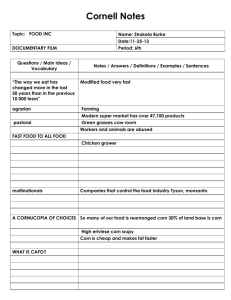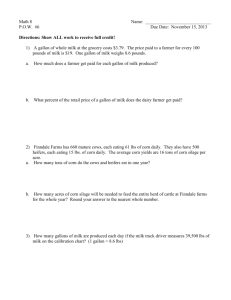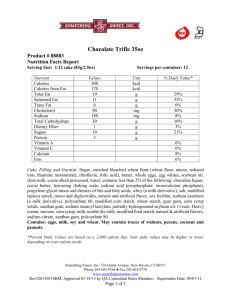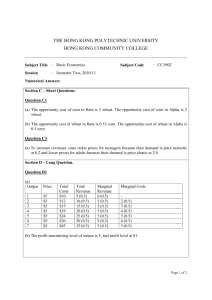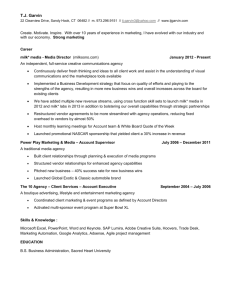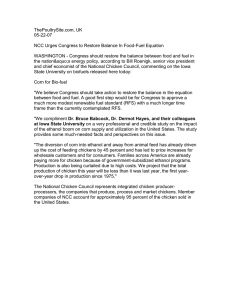Stabroek News, Guyana 07-08-07
advertisement
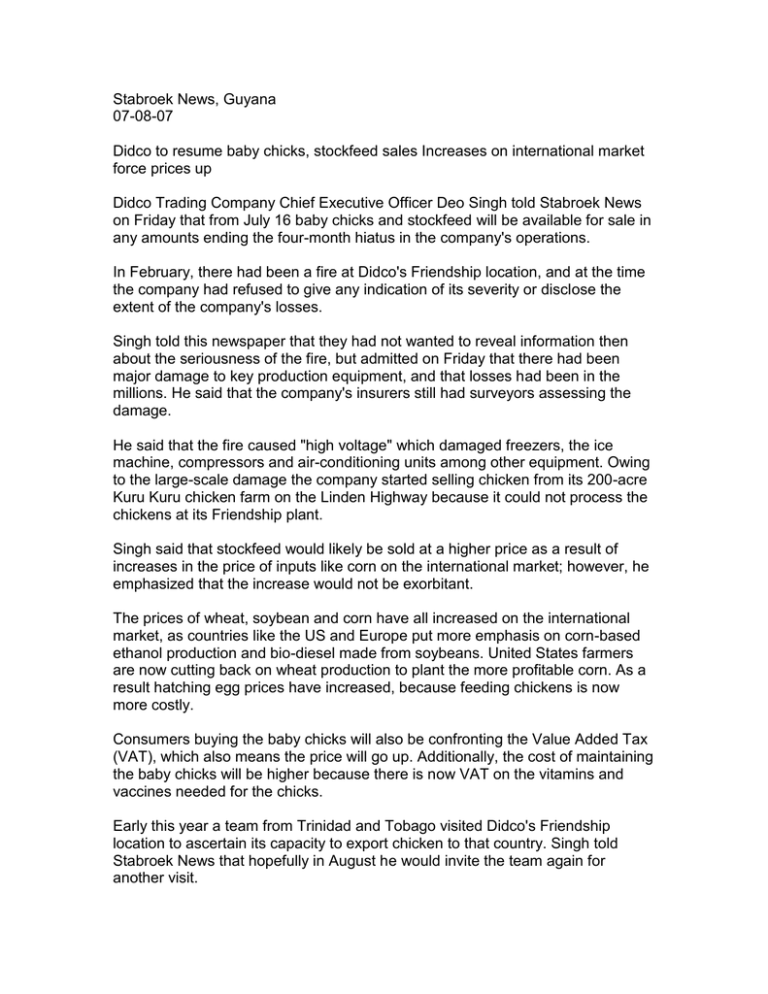
Stabroek News, Guyana 07-08-07 Didco to resume baby chicks, stockfeed sales Increases on international market force prices up Didco Trading Company Chief Executive Officer Deo Singh told Stabroek News on Friday that from July 16 baby chicks and stockfeed will be available for sale in any amounts ending the four-month hiatus in the company's operations. In February, there had been a fire at Didco's Friendship location, and at the time the company had refused to give any indication of its severity or disclose the extent of the company's losses. Singh told this newspaper that they had not wanted to reveal information then about the seriousness of the fire, but admitted on Friday that there had been major damage to key production equipment, and that losses had been in the millions. He said that the company's insurers still had surveyors assessing the damage. He said that the fire caused "high voltage" which damaged freezers, the ice machine, compressors and air-conditioning units among other equipment. Owing to the large-scale damage the company started selling chicken from its 200-acre Kuru Kuru chicken farm on the Linden Highway because it could not process the chickens at its Friendship plant. Singh said that stockfeed would likely be sold at a higher price as a result of increases in the price of inputs like corn on the international market; however, he emphasized that the increase would not be exorbitant. The prices of wheat, soybean and corn have all increased on the international market, as countries like the US and Europe put more emphasis on corn-based ethanol production and bio-diesel made from soybeans. United States farmers are now cutting back on wheat production to plant the more profitable corn. As a result hatching egg prices have increased, because feeding chickens is now more costly. Consumers buying the baby chicks will also be confronting the Value Added Tax (VAT), which also means the price will go up. Additionally, the cost of maintaining the baby chicks will be higher because there is now VAT on the vitamins and vaccines needed for the chicks. Early this year a team from Trinidad and Tobago visited Didco's Friendship location to ascertain its capacity to export chicken to that country. Singh told Stabroek News that hopefully in August he would invite the team again for another visit. Owing to the closure of Didco, its KFC and Pizza Hut franchises had to be supplied by another large chicken producer. In May and early last month retailers had reported a chicken shortage, but at the time prices were still stable at $260 per pound. The second largest chicken supplier, Bounty Farm Limited, has indicated that its chicken prices would remain stable once they received an ample supply of rice to substitute for corn in their feed. Rising food prices Consumers this year have been hard hit by rising food prices, which are strongly influenced by the overseas prices and by VAT. The government is yet to give a report on the revenues collected from VAT, even though documents from the Guyana Revenue Authority (GRA) reveal that after three months collections for VAT/Excise Tax were 44% above projections. Milk prices which have topped $600 this year as compared to $260 per pound last year at some retail outlets are putting a dent in consumer spending, and the recent hike in the flour price will not lessen the burden. The international forecast for wheat and milk prices remains grim, as analysts say it might be some months or even years before the prices stabilize, and in the case of milk these are not likely to return to last year's levels. New Zealand based The Dominion Post online reported on Thursday that US milk prices had jumped 50% during the past year and high grain prices were pushing up milk prices in Europe, North America and other countries to cover the extra production costs. The report said that the use of grain to produce biofuel was adding to the problem. "Even if the oil price were to drop, it is far from certain that support for biofuels would unravel," the Dominion reported former New Zealand Dairy Board Chief executive Murray Gough as saying. The US based, The News Journal online reported Friday that a United States Department of Agriculture survey last week found that farmers had planted 2.4 million more acres for corn than they had predicted this year, and more corn meant less wheat and barley. The Journal said that using corn for fuel put pressure on the market for feed corn, making it more costly to feed cows. Pizza Hut spokesman Tim McIntyre was quoted in the article as saying that the price of its cheese pizza had increased and another US pizza producer, Domino, also indicated that an increase could be in the picture. Domino sells more than 400 million pizzas a year, according to the Journal. Bruce Babcock, director of the Center for Agricultural and Rural Development at Iowa State University said in the Journal report that milk and cheese prices would not likely drop to what they had been a year ago, although they were projected to fall in the next few months to a year. The Irish based Roscommon Herald online on Wednesday quoted the Irish Farmers Association President Padraig Walshe as saying that "milk prices will remain strong for at least the next three years, which is as far as anyone can safely predict." He said that the strong global demand, lower production levels and virtually nonexistent stocks have completely changed the outlook for dairy products. The president indicated that European commodity prices had increased by 16c/L or 73c/gallon, with whole milk power and skimmed milk powder prices more than doubling on world markets. (Nicosia Smith)

